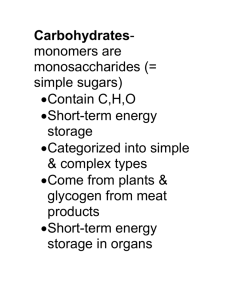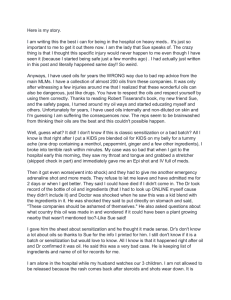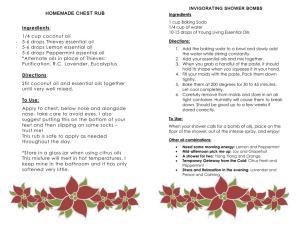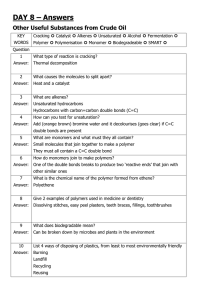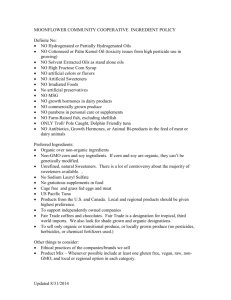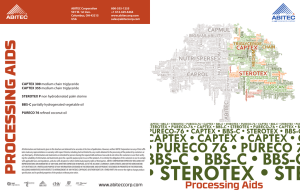Working with Your Focus
advertisement
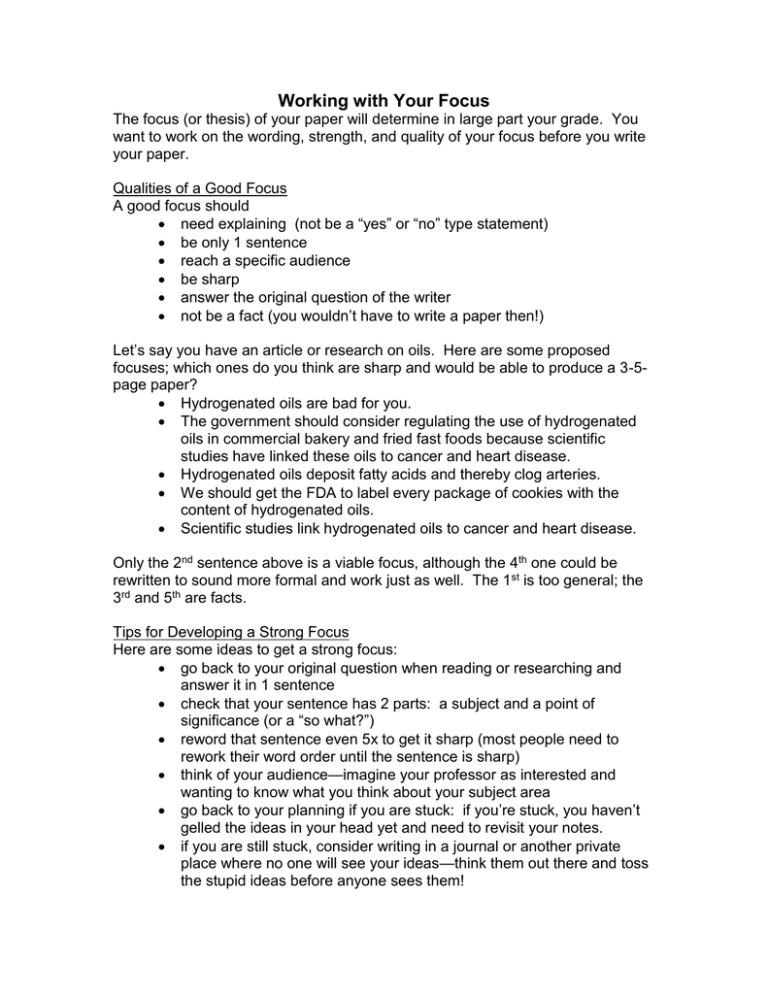
Working with Your Focus The focus (or thesis) of your paper will determine in large part your grade. You want to work on the wording, strength, and quality of your focus before you write your paper. Qualities of a Good Focus A good focus should need explaining (not be a “yes” or “no” type statement) be only 1 sentence reach a specific audience be sharp answer the original question of the writer not be a fact (you wouldn’t have to write a paper then!) Let’s say you have an article or research on oils. Here are some proposed focuses; which ones do you think are sharp and would be able to produce a 3-5page paper? Hydrogenated oils are bad for you. The government should consider regulating the use of hydrogenated oils in commercial bakery and fried fast foods because scientific studies have linked these oils to cancer and heart disease. Hydrogenated oils deposit fatty acids and thereby clog arteries. We should get the FDA to label every package of cookies with the content of hydrogenated oils. Scientific studies link hydrogenated oils to cancer and heart disease. Only the 2nd sentence above is a viable focus, although the 4th one could be rewritten to sound more formal and work just as well. The 1st is too general; the 3rd and 5th are facts. Tips for Developing a Strong Focus Here are some ideas to get a strong focus: go back to your original question when reading or researching and answer it in 1 sentence check that your sentence has 2 parts: a subject and a point of significance (or a “so what?”) reword that sentence even 5x to get it sharp (most people need to rework their word order until the sentence is sharp) think of your audience—imagine your professor as interested and wanting to know what you think about your subject area go back to your planning if you are stuck: if you’re stuck, you haven’t gelled the ideas in your head yet and need to revisit your notes. if you are still stuck, consider writing in a journal or another private place where no one will see your ideas—think them out there and toss the stupid ideas before anyone sees them! Some Focuses that Need Improvement Let’s take a look at some common focuses that need revising: a good one means a better grade. Professors look for a clean, sharp focus when grading papers. 1. Huckleberry Finn is a good book. This focus is way too broad and there are no criteria for good to substantiate it (what does good mean?). 2. I decided to research the value of play for five-year olds because you assigned me to do this project, and when I got to the library, the words play and social skills popped out at me, and so I decided to concentrate on why play is important for five-year olds. This focus is way too long, too personal, and doesn’t give the reader any idea about exactly what the paper will be about. Now it’s just topics. 3. All magazine writers are terrorists. This focus (and most with the words all, never or other such extreme terms) is prejudiced and cannot be proven. 4. There are differences between Gibbon’s interpretation of the fall of the Roman Empire and those of modern historians. This focus is too general—figure out exactly what differences exist and let that be your focus. Additionally, use the first names of the authors as well as the last (in this case, Edward Gibbon). 5. Success is important: Webster’s dictionary defines success as “a favorable or satisfactory outcome or result.” This focus doesn’t let the writer articulate his or her point of view: quoting the dictionary is not necessary either. 6. For me, I think that Machiavelli’s The Prince is better than Sun Tzu’s The Art of War. This focus doesn’t need to mention the writer, and it needs to clarify exactly why one book is better than another. One other point is that the focus sentence should not have the author in the possessive case (‘s). To Get a Great Focus 1. Ask yourself SO WHAT or WHY a million times until you get a solid, individual idea that needs to be explained. 2. Be generous: don’t be so critical of a source that you don’t recognize its strengths in your focus. 3. Use contrast: SUV commercials feature great images, but those images cost lives. 4. Keep your focus short. Most people write a long one the first time. Revise it until it is powerful.
